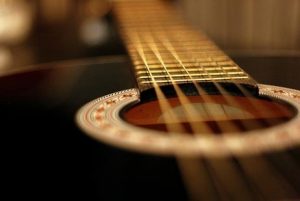Timbre, beauty and harmonious voice
 Today I would like to touch on the issue of timbre, beauty and melodiousness of our voice. It is often said that a woman loves with ears, and a man loves with her eyes. But I have a feeling that everyone loves with their ears, and with their eyes selectively, aesthetes and especially spoiled lovers of beauty.
Today I would like to touch on the issue of timbre, beauty and melodiousness of our voice. It is often said that a woman loves with ears, and a man loves with her eyes. But I have a feeling that everyone loves with their ears, and with their eyes selectively, aesthetes and especially spoiled lovers of beauty.
So, the voice is important for everyone, especially for singers. And for ordinary people – not musicians – the beauty of the voice is also important, because it depends on whether your voice is sweet or not, whether the girl will fall in love with you or not, whether the director will like you or you don’t like it at once, whether the client will trust you Or, on the contrary, immediately turn away from you and slam the door in front of your nose. Continue reading
Richard Hugh Blackmore
 Richard Hugh Blackmore was born on April 14, 1945 in the English town of Weston-Super-Mare. The first instrument – an ordinary acoustic guitar – was presented to Ritchie at the age of ten by his father, and it was his father who insisted that Ritchie not only learned to strum on six strings, but also take classical guitar lessons. At that time, the Blackmore family was already living in the town of Heston, where in the house of their grandmother Ritchie I heard for the first time the powerful music of JS Bach, which had sunk into the soul of the future guitar virtuoso for the rest of her life. Continue reading
Richard Hugh Blackmore was born on April 14, 1945 in the English town of Weston-Super-Mare. The first instrument – an ordinary acoustic guitar – was presented to Ritchie at the age of ten by his father, and it was his father who insisted that Ritchie not only learned to strum on six strings, but also take classical guitar lessons. At that time, the Blackmore family was already living in the town of Heston, where in the house of their grandmother Ritchie I heard for the first time the powerful music of JS Bach, which had sunk into the soul of the future guitar virtuoso for the rest of her life. Continue reading
Ballad
 A ballad is a narrative of a fantastic or dramatic nature. The word itself comes from the Italian “ball”, which means to dance. Once upon a time ballads were called dance songs. In the middle of the century ballads turned into narrative songs. They told about historical events, about people’s life, about knightly deeds. The most common theme of the German ballads was the exposure of the rich, who deceived the people and profited from it. And in the English ballads, which arose from the peasant heroic songs, it was told about the good advocate of the poor Robin Hood. There was a period when the ballad was reborn into a purely literary genre. Continue reading
A ballad is a narrative of a fantastic or dramatic nature. The word itself comes from the Italian “ball”, which means to dance. Once upon a time ballads were called dance songs. In the middle of the century ballads turned into narrative songs. They told about historical events, about people’s life, about knightly deeds. The most common theme of the German ballads was the exposure of the rich, who deceived the people and profited from it. And in the English ballads, which arose from the peasant heroic songs, it was told about the good advocate of the poor Robin Hood. There was a period when the ballad was reborn into a purely literary genre. Continue reading
Romance
 The word romance takes us to the Middle Ages in Spain. In those days, in addition to the everyday ordinary language, there was another – Latin. Scientists wrote books on it, church prayers were performed. We studied it in our pre-revolutionary gymnasiums. Latin was recognized as the official language of the Catholic Church. Although this language was widely spoken, it was not widely available. Latin was known only to literate people, and there were incredibly few of them at that time. And then, along with church writings in Latin, songs and poems of the people’s warehouse, which were performed in the Romanesque (Spanish) language, began to appear. Hence the name “romance”. From Spain, romances quickly spread throughout Europe, and at the end of the 18th century appeared in Russia. Of course, here they did not sound in Spanish, but the name stuck. Continue reading
The word romance takes us to the Middle Ages in Spain. In those days, in addition to the everyday ordinary language, there was another – Latin. Scientists wrote books on it, church prayers were performed. We studied it in our pre-revolutionary gymnasiums. Latin was recognized as the official language of the Catholic Church. Although this language was widely spoken, it was not widely available. Latin was known only to literate people, and there were incredibly few of them at that time. And then, along with church writings in Latin, songs and poems of the people’s warehouse, which were performed in the Romanesque (Spanish) language, began to appear. Hence the name “romance”. From Spain, romances quickly spread throughout Europe, and at the end of the 18th century appeared in Russia. Of course, here they did not sound in Spanish, but the name stuck. Continue reading
Kinds of musical activities in kindergarten
 Music education in kindergarten is designed to contribute to the development of a multifaceted and harmoniously developed personality. On the one hand, it aims to promote the aesthetic, moral, mental and physical education of children and, on the other hand, gives children the necessary age-appropriate musical knowledge and skills of listening and perceiving music, skills of performing songs and movement to music. kindergarten
Music education in kindergarten is designed to contribute to the development of a multifaceted and harmoniously developed personality. On the one hand, it aims to promote the aesthetic, moral, mental and physical education of children and, on the other hand, gives children the necessary age-appropriate musical knowledge and skills of listening and perceiving music, skills of performing songs and movement to music. kindergarten
The tasks of music education for preschoolers are realized through practical activities. Continue reading



